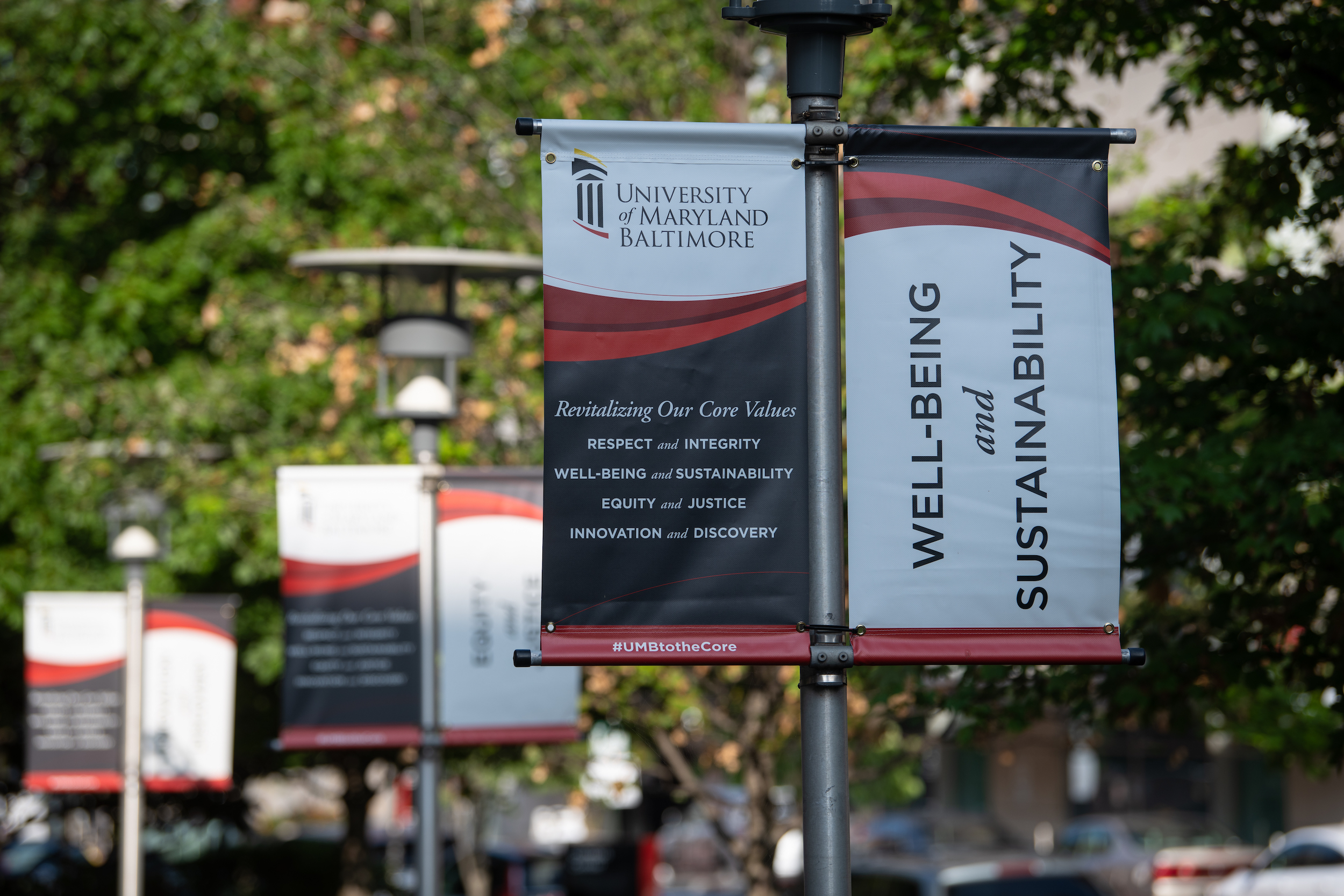UMB Earns First STARS Silver Rating for Sustainability
May 21, 2025 Jen Badie
The report highlights the University’s efforts across academics, engagement, operations, planning and administration, and innovation and leadership by the premier benchmark tool for sustainability.
The University of Maryland, Baltimore (UMB) has earned its first STARS Silver rating from the Association for the Advancement of Sustainability in Higher Education, highlighting UMB’s sustainability efforts and success across academics, engagement, operations, planning and administration, and innovation and leadership.
“With an Office of Sustainability that is just shy of four years old, earning Silver for our first-ever submission to the program is a great accomplishment,” said Elizabeth Main, MPA, director of the Office of Sustainability. “It helps us capture and celebrate the great progress we’ve made while also identifying areas for focus and improvement. The expansive nature of the report can help us generate ideas for best practices in data collection, programming, and policies moving forward.”
STARS (Sustainability Tracking, Assessment & Rating System) is the most widely recognized framework in the world for publicly reporting comprehensive information related to a college or university’s sustainability performance. The premier benchmark tool for sustainability in higher education is a self-reporting process that has more than 1,200 participants in 52 countries. Higher education institutions earn ratings of bronze, silver, gold, or platinum.
UMB’s 390-page report highlights many of its sustainability programs and initiatives such as its Sustainability Dashboard and interactive maps; its Energy Reduction Team; and its new School of Social Work building, which will be UMB’s first certified operational net-zero emissions building when complete. It also features “Climate Change, Health, and Society,” an interprofessional elective available to students in all seven UMB schools.
In a letter to STARS, UMB President Bruce E. Jarrell, MD, FACS, pointed out that UMB has shown a long-term commitment to sustainability. In 2021, the University created the Office of Sustainability and selected Well-Being and Sustainability as one of its core values, making it a prominent part of UMB’s work.
“We have made significant progress in ensuring that sustainability is used as a framework as we live out our mission to improve the human condition and serve the public good of Maryland and society-at-large,” he said.
Anna Borgerding, PMP, assistant vice president, Facilities and Operations, emphasized that the STARS recognition is an institutionwide honor.
“The STARS award is a powerful reflection of UMB’s collective commitment to sustainability,” she said. “It demonstrates how actions within schools and departments can transcend traditional silos to achieve significant institutional goals and earn national recognition.”
UMB performed well in STARS’ Planning and Administration section, which examines how the University coordinates sustainability initiatives, its commitments and planning, and its institutional governance structures. The report included information about UMB’s Sustainability Strategic Plan, which outlines the overarching goals and strategies for University sustainability from 2022-2026 and was developed by UMB students, staff, and faculty.
“Our high scores in this section are a testament to the level of commitment from leadership for integrating sustainability into UMB’s culture and operations,” Main said.
UMB also scored well in the Well-Being and Work section, emphasizing that UMB values its employees and offers ample resources to support employee wellness such as Human Resource Services’ Launch Your Life health and wellness program.
The work on the report, which began in March 2024, was a yearlong process spearheaded by Angela Ober, senior sustainability specialist, and Ben Eglash, MS, former waste and data fellow. They analyzed information to see which areas they needed to conduct more research on to understand their feasibility in the ratings. The team then began data gathering from UMB websites and reached out to departments for more detailed information when necessary. The report went through several layers of review to make sure the information was accurate and up to date before being submitted.
“The rating is something for not just our office but the entire University to be proud of,” Ober said. “Though much of the reporting is about things our office or Facilities and Operations works on, it encompasses other work the Office of Sustainability may support, promote, or not be directly involved in. I think that tells a wonderful story of all the great work that UMB has done to make sustainability on campus a priority, and it also speaks to the wide breadth sustainability has beyond typical environmental sustainability. It’s about academics, access, community, justice, research, well-being, and much more than energy and waste.”